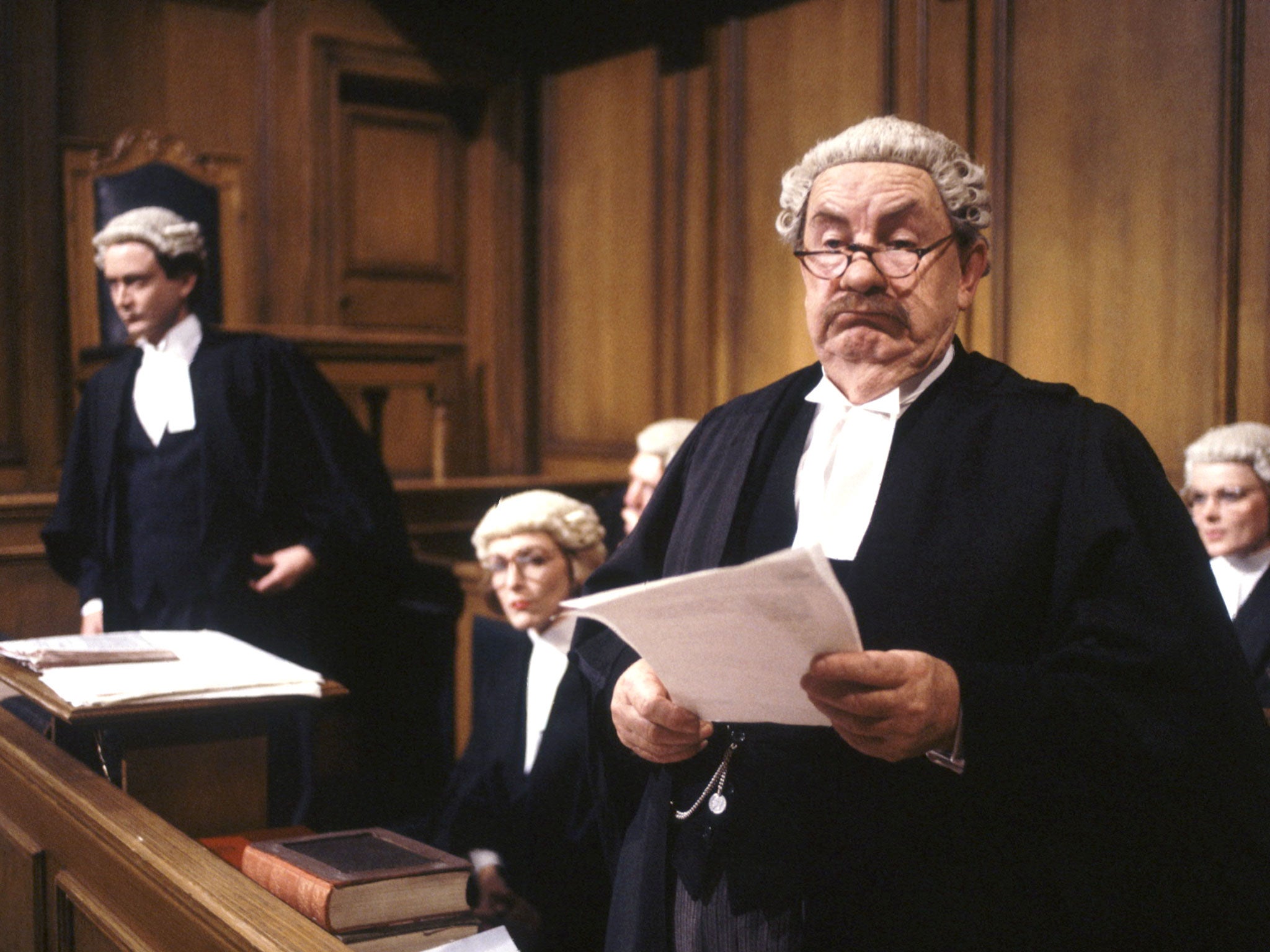Rumpole Series by John Mortimer, book of a lifetime: Grandeur and grotesquery, seen through the eyes of a secret iconoclast
The immensely popular stories moulded Michela Wrong's vision of the world and her sense of what fiction could do more effectively

Workplaces, which account for so much of our waking lives, receive nothing like enough attention in fiction. Or rather, certain kinds of workplaces go ignored. Back in the day, David Lodge told us more about the life of the campus lecturer than I, for one, needed to know. Thanks to the detective novel industry, we all boast an impressive knowledge of a pathologist's working routine. Ian McEwan gave us a day-in-the-life of a brain surgeon. But how many of us have any idea what a quantity surveyor, or a housing officer, actually does?
A fascination with the workplace is the main reason John Mortimer's "Rumpole " series has regularly appeared by my bedside over the years, his books the ones I reach for when sleep proves resistant. My choice is partly explained by the fact that short stories offer bite-sized nuggets of narrative at a time when the mind balks at the prospect of a full-scale meal. The humour doesn't hurt, either. But it is Mortimer's preoccupation with what was his own and is his protagonist's place of work – the warren of alleyways lining Fleet St which house London's legal chambers – that keeps me returning. However apparently banal, everyone's workplace is a stage on which mortal triumphs and tragedies slowly unfurl, as hierarchical and conspiracy-infested as a Tudor court. We all know this from personal experience.
Like all great narrators, defence barrister Horace Rumpole is a flawed man, an anti-hero horribly aware of his own absurdity. Food-stained, grubby, stinking of cheap cheroots, he lampoons himself even while mourning the slow death of his dreams, crushed under the weight of suburbia and the expectations of wife Hilda. But the real butt of Mortimer's quiet yet enormous anger is post-war Britain, a snobbish, racist society Rumpole is professionally committed to defending but which one suspects he would happily seen blown to kingdom come.
The tropes are as familiar as an old pair of socks. No Rumpole story would be complete without a reminder of Rumpole's liking for Chateau Thames Embankment or an admiring mention of Phyllida Trant, "the Portia of our Chambers". They serve as the mast pegs holding down Mortimer's creative marquee. Under the tarpaulin, in this seemingly safe environment, he serves up both grandeur and grotesquery, seen through the sympathetic eyes of a secret iconoclast. They aren't Literature with a capital "L", but these immensely popular stories, I suspect, moulded my vision of the world and my sense of what fiction could do more effectively than any number of classic novels.
Michela Wrong's debut novel, 'Borderlines', is out on 13 August
Subscribe to Independent Premium to bookmark this article
Want to bookmark your favourite articles and stories to read or reference later? Start your Independent Premium subscription today.

Join our commenting forum
Join thought-provoking conversations, follow other Independent readers and see their replies